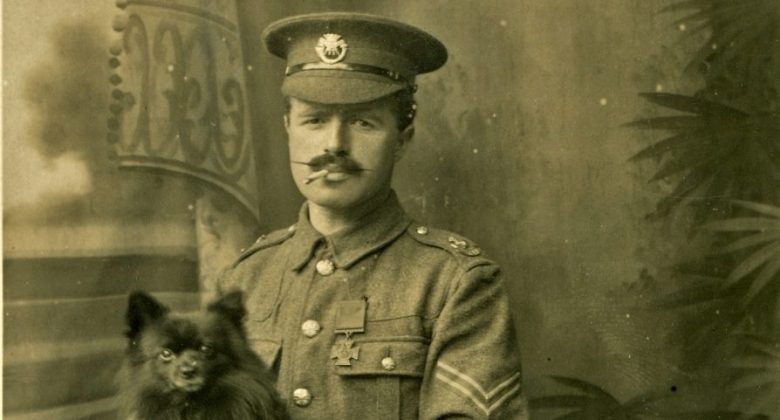Thomas Edward Rendle, was born on the 14 December 1884, in Bedminster, Bristol, the eldest of the seven children of James Rendle, a paper merchant’s packer, and Charlotte Rendle, a domestic servant. His mother died in 1898, at which time his father was forced to split the family up. Thomas and his oldest sister Charlotte (born 1886), stayed with their father, whilst his four other siblings (one sister had died in the same year she was born), were sent to Canada.
After attempting to join the Gloucestershire Regiment, but being unable to, he enlisted with the Duke of Cornwall’s Light Infantry in September 1902, travelling to South Africa in January 1903. It was here that he met his wife, Lillian Sarah Crowe, herself South African, working as a nursemaid for the children of Captain Turner of the DCLI, having first done so in England. They were married in South Africa in 1906, moving back to England the same year. Their first child, Ruby Lilian Jessie Rendle was born in Plympton, Devon in 1907 with a son, Edward william Wootton Rendle being born in 1909 in Gravesend, Kent. Rendle’s pre-WWI service was predominantly served with the regiment in England and Ireland. In 1907 Rendle became a bandsman, then becoming as all the band did, a stretcher bearer in WWI. On 13 August 1914, he travelled to France with the regiment. On 18th November 1914, 1st Battalion DCLI were holding the front line near Wulverghen, from where, under extremely heavy artillery and rifle fire Thomas Edward Rendle, rescued a badly wounded officer. He was awarded for this act of gallantry, the Victoria Cross. By 1915, he was back in Bodmin at the Depot, being enlisted to the 3rd (Training and reserve) Battalion at Falmouth, so that he might aid with recruiting, due to his value as a V.C. holder. He was a member of the 3rd Battalion band, who carried out a five-month recruiting march through Cornwall, before he moved with the 3rd Battalion, to the Isle of Wight. He remained on the Isle of Wight for the remainder of the war, being promoted to Corporal and then Acting Serjeant.
The 3rd Battalion were disbanded in 1919, at which time was posted back to the 1st Battalion, where he was appointed Band Serjeant. In November 1920, he was discharged from the Army, having been diagnosed with ‘defective vision’. In 1921, he returned to South Africa, with his wife and two children, living in Cape Twon, where he worked for the Standard Bank, though he was quickly appointed by the local regiment, the Duke of Edinburgh’s Own Rifles as their Bandmaster. Thomas Edward Rendle died, in Cape Town on 1st June 1946. He was buried there with full military honours.

